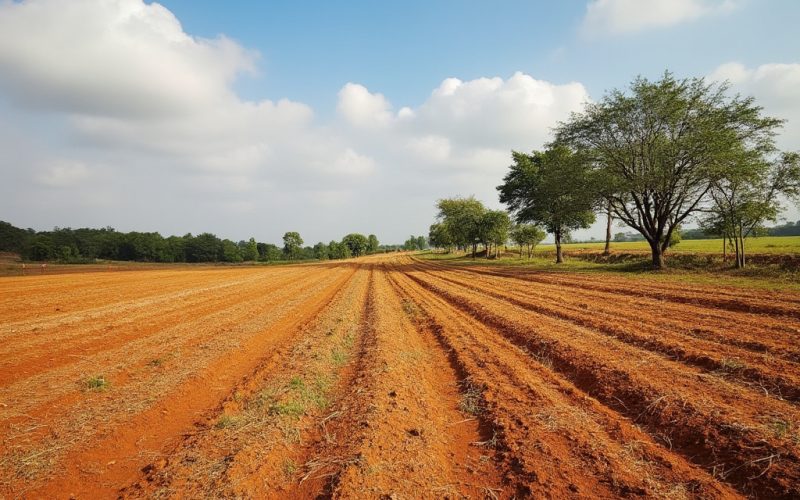
The world is heading towards a major water crisis, with experts warning that global freshwater demand will exceed supply by 40% by 2030. The Global Commission on the Economics of Water shows the need for urgent collective action, emphasizing that unsustainable practices, pollution, and climate change are placing unprecedented pressure on global water systems.
Without immediate intervention, more than half of global food production could be at risk by 2050.
Water Scarcity: A Global Threat
Currently, nearly 2.2 billion people lack access to safe drinking water, and half of the world’s population faces water shortages annually. Water scarcity isn’t limited to developing regions.
OECD-backed group calls for global pact to solve water crisis https://t.co/3P7QvtYdB5 pic.twitter.com/pLS0Ot34Tt
— Reuters (@Reuters) October 17, 2024
Several European Union countries face the challenge of low water reserves, particularly due to climate change, overuse, and poor water management practices. The countries with the lowest water reserves within the EU include:
1. Malta: Malta is one of the most water-scarce countries in the European Union, with very limited freshwater resources. The island nation relies heavily on desalination and importing water to meet its needs. Groundwater overuse and poor rainfall exacerbate the scarcity problem.
2. Cyprus: Cyprus has long struggled with water scarcity due to its dry climate and insufficient natural freshwater resources. The country is highly dependent on desalination plants to provide drinking water, especially during droughts.
3. Belgium: Belgium, particularly in Flanders, experiences low water availability, especially when compared to other European countries. It has one of the lowest levels of available water per capita in Europe. Increasing droughts and a high population density put additional pressure on its limited water resources.
4. Spain: While Spain has large water resources, southern Spain regularly experiences severe droughts, leading to water shortages. Agricultural overuse in regions like Andalusia depletes water supplies, especially in the context of a warming climate.
5. Greece: Greece faces water scarcity challenges, particularly on its islands, which depend heavily on desalination or water transportation. The country’s uneven distribution of water resources between the mainland and islands increases the severity of the problem.
Impact on Agriculture and Food Security
Agriculture consumes about 70% of global freshwater, making it one of the most water-dependent sectors. Without changes in water management, over half of global food production is at risk by 2050. Regions such as sub-Saharan Africa, which rely on rain-fed agriculture, are already suffering from prolonged droughts that threaten food security.
The report stresses the need to reduce water waste in agricultural processes by adopting more sustainable irrigation methods and stopping the over-extraction of water from vital ecosystems.
Water’s Role in Energy and Economy and Public Health
Water scarcity also threatens energy production, particularly hydropower, which is vital for countries like the U.S., where droughts have already reduced electricity output from facilities like the Hoover Dam. These disruptions impact both local economies and global supply chains. Furthermore, water is intrinsically tied to economic stability. Countries that do not manage water resources efficiently risk destabilizing their economies and undermining public health.
Water scarcity isn’t just an environmental issue—it is a public health crisis. Currently, 780 million people lack access to improved water sources, and 80% of wastewater worldwide is returned to the environment untreated. This leads to widespread health hazards, particularly in developing regions, where untreated water results in disease and undermines public hygiene.
Actionable Solutions
The Global Commission on the Economics of Water has outlined several crucial steps to avert this crisis. These include:
- Treating water as a global common good, ensuring equitable distribution and shared responsibility.
- Reforming agricultural practices, including eliminating harmful subsidies that promote over-extraction of water.
- Investing in innovative technologies like wastewater recycling and desalination to create sustainable water supplies, particularly in regions experiencing chronic shortages.
- Restoring freshwater ecosystems such as wetlands and aquifers to rebuild natural water reserves and improve water quality.
The Future of Water Management
To avoid catastrophic outcomes, governments and industries must shift from reactive to proactive water management strategies. The commission’s report calls for international collaboration and emphasizes that investing in water security is essential for achieving the UN’s Sustainable Development Goals (SDGs). By valuing water as a common good and promoting sustainable practices, the future can be brighter, ensuring water availability for all.
This global water crisis requires immediate action. By addressing the challenges head-on, we can ensure a sustainable future where water is available for everyone, contributing to economic stability, food security, and public health.
